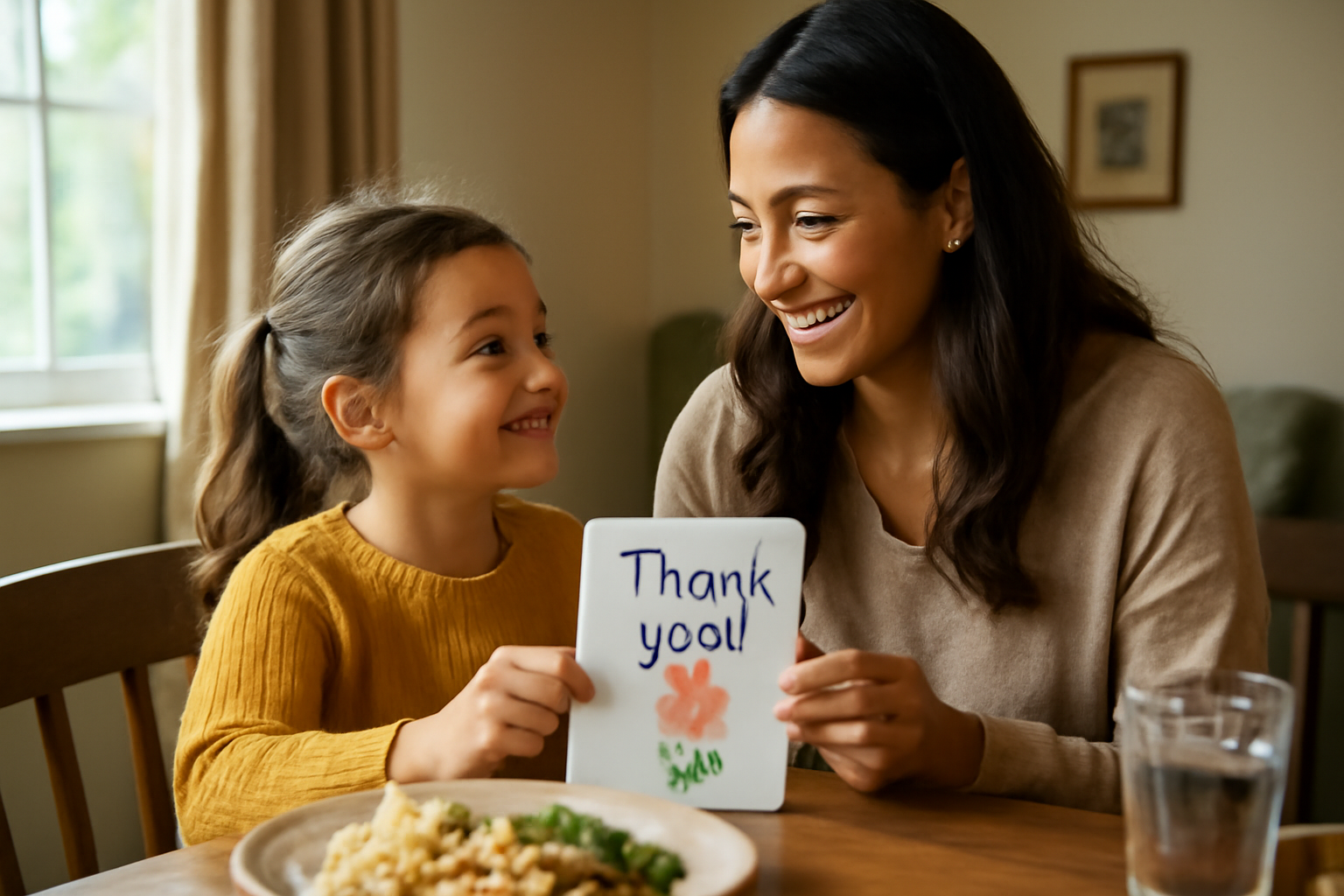In today’s fast-moving world, it’s easy for children to take things for granted—whether it’s their toys, meals, or even the love of their family. Teaching gratitude helps kids slow down, notice the good around them, and appreciate both people and experiences.
Gratitude isn’t just about saying “thank you.” It’s about developing a mindset of appreciation, empathy, and joy. And the earlier children learn it, the more it becomes a natural part of their lives.
Here’s how to raise kids who value gratitude every day.
Why Gratitude Matters
Grateful children tend to:
- Be happier and more optimistic
- Show more empathy and kindness
- Build stronger relationships
- Handle stress more effectively
- Appreciate non-material joys in life
Gratitude gives children emotional tools that will serve them for life.
Model Gratitude Yourself
The best way to teach gratitude is to live it. Let your child see you express appreciation often.
- Thank store clerks, teachers, and neighbors
- Say “I’m so grateful for this meal” during dinner
- Acknowledge small gestures: “Thank you for helping me with that”
Your example shows that gratitude is more than words—it’s a lifestyle.
Create Gratitude Rituals
Small daily practices can make gratitude a habit. Try:
- Gratitude at bedtime: Ask, “What’s one good thing that happened today?”
- Gratitude at meals: Each family member names one thing they’re thankful for
- Gratitude jar: Write down blessings on slips of paper and read them weekly
These rituals remind children to reflect on the positives in life.
Encourage Thank-You Notes and Gestures
Teach children to show appreciation for gifts, kindness, or help.
- Write thank-you notes or draw pictures for friends and relatives
- Say “thank you” directly when someone helps them
- Make small gestures, like sharing a treat with a sibling
Simple actions build a lifelong habit of expressing thanks.
Teach Perspective and Empathy
Help kids understand that not everyone has the same privileges.
- “Some children don’t have as many toys—aren’t we lucky to have ours?”
- “Not everyone has food every night. Let’s be grateful for our dinner.”
- “Imagine how happy your friend felt when you shared with them.”
These conversations teach empathy and deepen gratitude.
Limit Overindulgence
Too many gifts or rewards can weaken gratitude. Encourage your child to value what they already have.
- Rotate toys so they feel new again
- Set clear boundaries around treats and purchases
- Remind them that joy comes from people and experiences—not just things
This balance helps prevent entitlement.
Practice Gratitude Through Giving
Generosity reinforces appreciation. Encourage your child to:
- Donate gently used toys or clothes
- Help prepare food for someone in need
- Volunteer with family in the community
- Make small handmade gifts for loved ones
Giving back helps children realize how fortunate they are.
Praise Gratitude When You See It
Notice when your child shows appreciation and highlight it.
- “I love how you said thank you without being reminded.”
- “That was thoughtful of you to share with your friend.”
- “I saw how grateful you were for your gift—that made me proud.”
Positive reinforcement makes gratitude more natural.
Final Thought: Gratitude as a Way of Living
Raising grateful kids isn’t about forcing them to say “thank you.” It’s about nurturing awareness, empathy, and appreciation in daily life.
With your example, guidance, and small rituals, gratitude can become part of who your child is—not just what they say.
Because when children grow up grateful, they grow up happier, kinder, and more connected to the world around them.
